In celebration of First-Gen Day, the Bob Schieffer College of Communication highlights some of its first-gen faculty and staff. First-generation students are students whose parents did not complete a 4-year college or university degree.
Schieffer College is proud of its first-gen faculty, staff, students and alumni. Bob Schieffer ’59, our college namesake, was a first-gen student at TCU. Learn more about Schieffer College’s first-gen faculty and staff as they talk about their experiences and give advice to current TCU students.
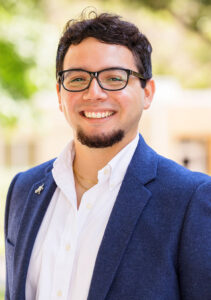
George Nunez ’19
George Nunez ’19
Academic Advisor
Dean’s Office
What was your biggest challenge as a first-generation student? Not knowing anything about college. Having to figure out what might be considered common sense to some students.
How did you overcome that challenge? I had to reflect and look at my accomplishments and stop comparing myself to other students. I had to get comfortable with asking questions and exploring new opportunities.
What advice would you give TCU students today? Continue being the first. You have been able to overcome so many barriers to be where you’re at now. So why stop now?
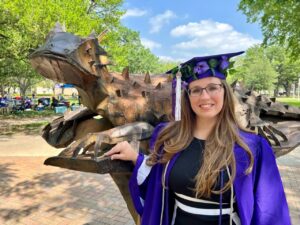
Randi Kellenberger ’08
Randi Kellenberger ’08
Coordinator of Degree Certification
Dean’s Office
What was your biggest challenge as a first-generation student? It was understanding the process of everything. I had no experience or point of reference, so each step was something new I had to learn. From FAFSA to what a major and minor were to dorm life, it was all new and, at times, very overwhelming.
How did you overcome that challenge? Asking for help! The TCU community is so nice, and everyone just wants students to succeed.
What advice would you give TCU students today? Read! Read the catalog, the syllabus and, of course, read the course materials! Also, get to know people. Not just your peers, but the faculty and staff. The more you get to know people, the better the sense of community you’ll feel.
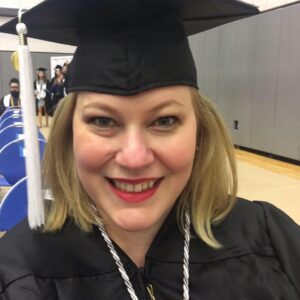
Holly Rusak
Holly Rusak
Director of Digital Media
Dean’s Office
What was your biggest challenge as a first-generation student? Not having anyone with college experience who could answer my questions or give me perspective. It often felt like everyone else knew what they were doing, but I didn’t.
How did you overcome that challenge? I tried to find people who could help me: professors, my student media advisor, friends who had been in college longer. The best thing any of us can do is ask for help and accept help!
What advice would you give TCU students today? Go to class and ask for help! You’ll learn so much just being in class, even if you aren’t prepared (but hey—be prepared!). Professors want you to succeed, and if you show up to class and try, they’ll be more open to helping you.
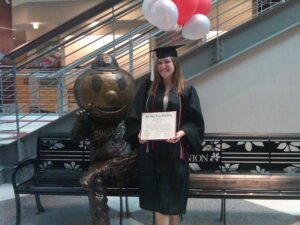
Erin Bostwick
Eryn Bostwick
Assistant professor
Communication Studies
What was your biggest challenge as a first-generation student? I’d say just understanding how higher education works. I didn’t know the difference between large, research-focused state schools and smaller liberal arts colleges. I had no idea what the life of a faculty member was like, or that I could and should reach out to them when I needed help. I didn’t understand the importance of networking or all of the resources at universities meant to help students succeed. I certainly had no idea how to choose a graduate program or how to create appropriate application materials. Learning about academia is like learning a new language, and I’m still learning that language now.
How did you overcome that challenge? I’m still working to overcome it, but I didn’t even realize these were issues for me until others started telling me about them. With that in mind, I guess I’d say I overcame this challenge through mentoring and the guidance of others who were/are more “in the know.”
What advice would you give TCU students today? Talk to your professors! Ask questions and don’t be afraid to reach out when you need help or would like guidance about the resources we have here on campus. Also, find someone you can trust and talk to for support. Often it can be tough for first-gen students because their family members don’t completely understand what they are going through. They try to support us, and that support is so appreciated, but it is hard to support someone properly when you aren’t sure what kind of support they need and/or don’t fully understand the world they are in (I’d say this was my second biggest challenge as a student). If you can find a first-gen mentor, they might be able to be a better source of support.
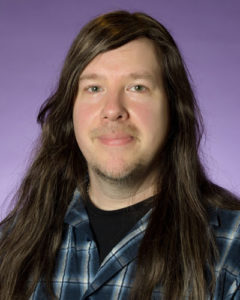
Kylo Patrick Hart
Kylo Patrick Hart
Department Chair
Film, Television & Digital Media
What was your biggest challenge as a first-generation student? Coming from a high school where I was one of the top students to going to an institution where it was all top students. Not quite as easy to earn high grades anymore. Spent the first year figuring out what it takes to excel in the courses.
How did you overcome that challenge? Over time, you figure out what it takes to write a paper that will impress faculty members. Trial and error. Luckily, I figured it out.
What advice would you give TCU students today? I recommend they do their reading for their classes. So much of a course experience is what you come into the classroom with. You learn so much more in any class when you keep up with readings and bring that knowledge to educational settings. It makes such a difference.

Russell Mack
Russ Mack
Instructor
Strategic Communication
What was your biggest challenge as a first-generation student? First—my parents weren’t in a position to give me a lot of guidance – it was foreign to them. They gave me moral guidance and work ethic. But they didn’t have a basis to counsel me about majors or colleges. Second—I grew up in small town in Pennsylvania and went to college in D.C. Suddenly, I was in a big city and surrounded by students who grew up in the New York area. They were much more sophisticated and worldly — it took some adjustment. Most of the students around me had been places and seen things I hadn’t—they were from more sophisticated and higher-income families. I felt like a rube from a small town.
What advice would you give TCU students today? First, to make sure you realize how fortunate you are and understand the fact that 99 percent of the people in the world would cut off their right arm to be where you are. Second, make sure you get your money’s worth. Somebody is paying a fortune for you to be here. If you waste time or don’t pay attention in class, you are pouring money down the drain. Make sure you squeeze every benefit you have into the 50 minutes of class. Develop as many different skills as you can. Fill as many buckets as you can with different skills—writing, strategic thinking, expanding your understanding of history, exposure to different religious or ethical theories. The world will demand that you multi-task and have multiple skills. Come into TCU with a handful of buckets, each of which represents a skill you don’t have. Fill as many as you can and keep overflowing it. Come out of here with six or seven skills you’ve developed. You’ll figure out how to use them all – the world will demand you multi-task.
